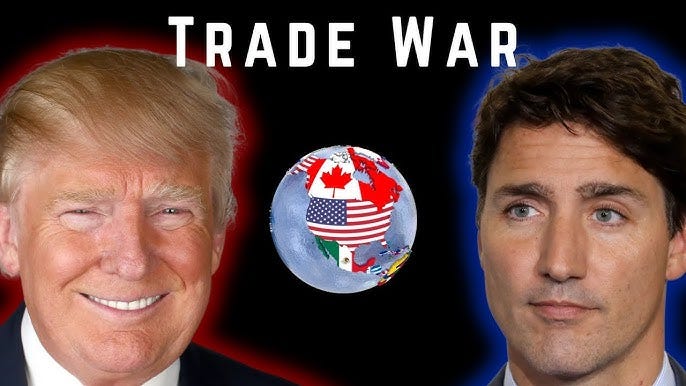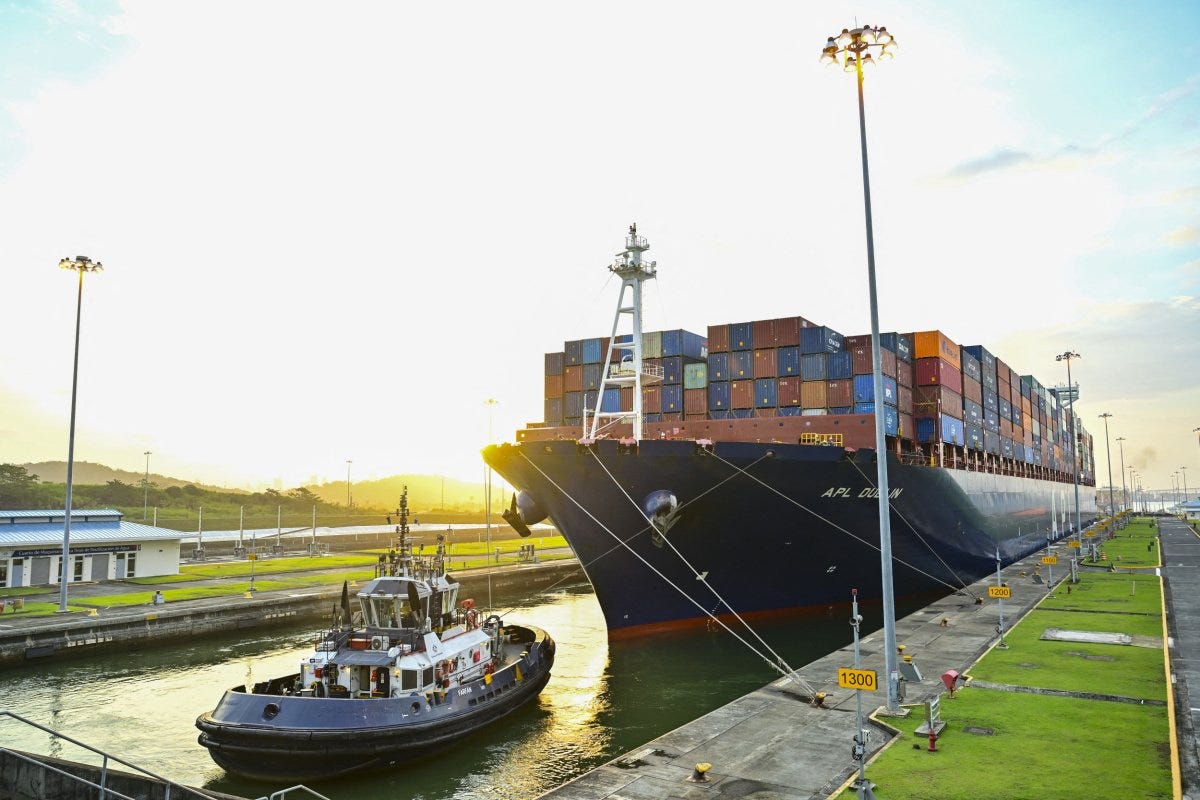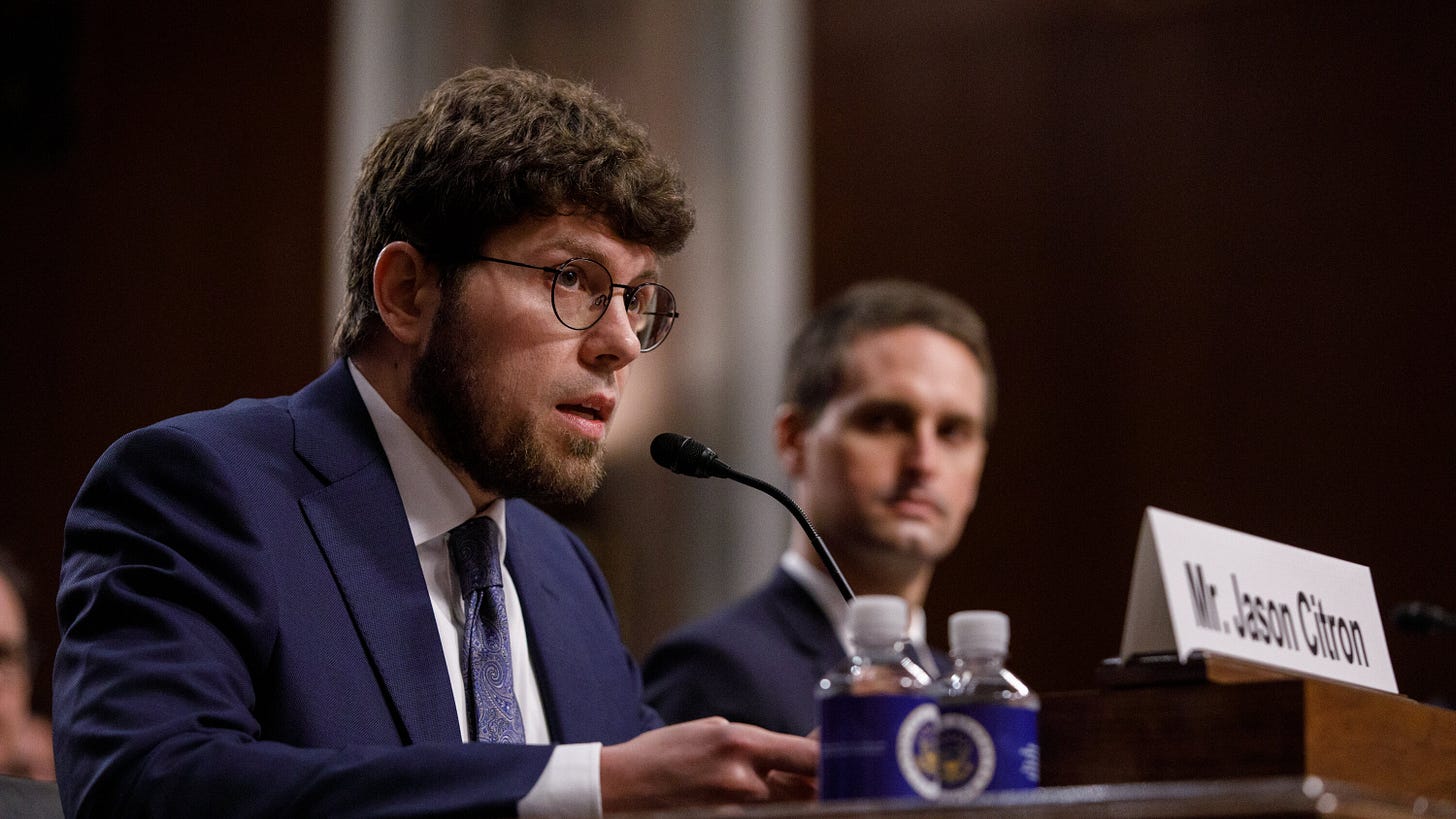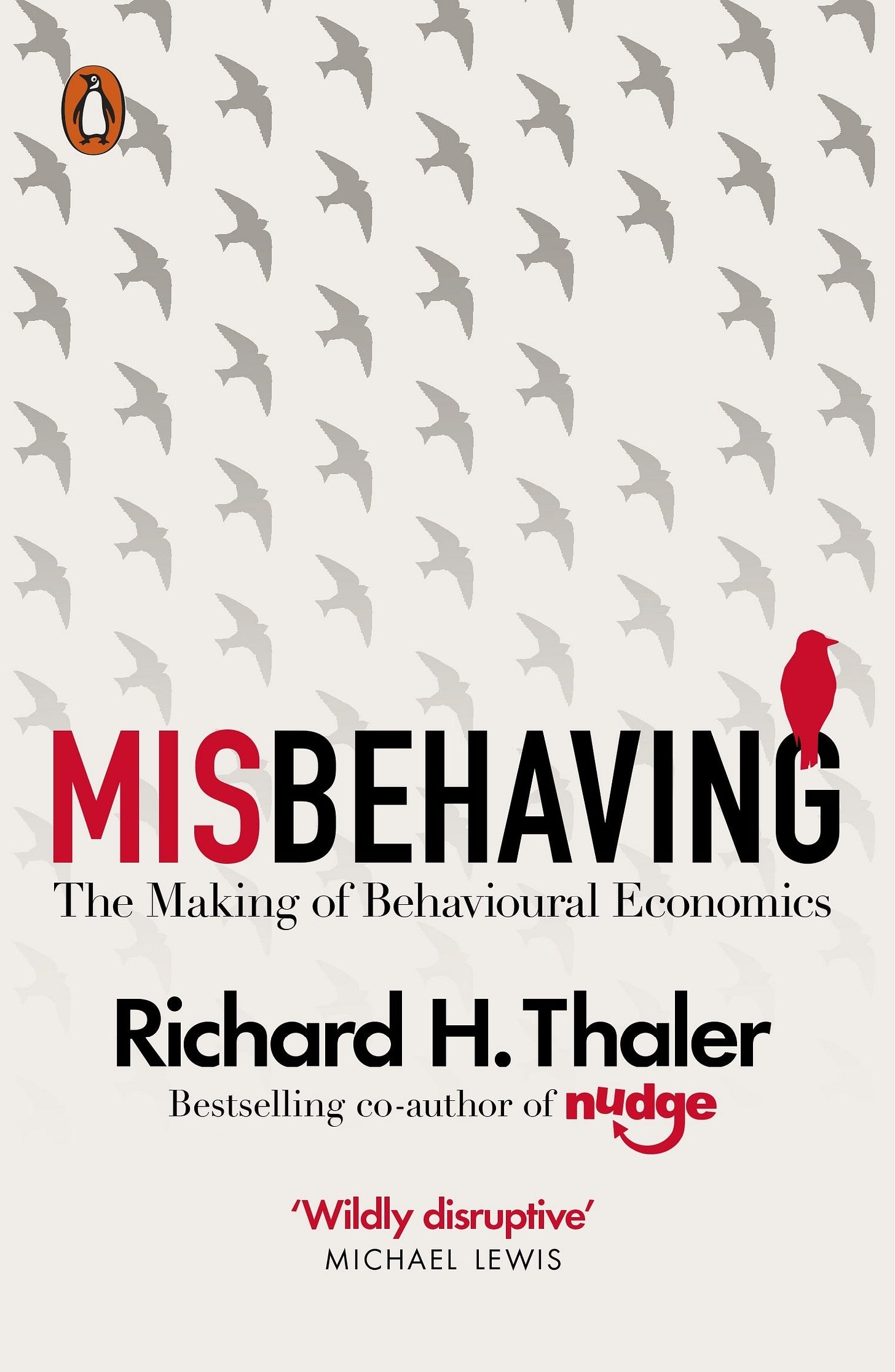Weekly Brief #69
The trade war officially starts... Plus, BlackRock buys Panama ports for $23 bln, TSMC’s $100 billion U.S. investment, Discord in-talks for potential IPO, Amazon partners with GE Vernova, and more.
A huge welcome to the 15 investors who joined The J. Nicholas since last week! Haven’t subscribed yet? Join 852 intelligent investors by subscribing here.
Good morning investor 👋,
Welcome back to the 69th Weekly Brief.
This week’s performance:
S&P 500: -2.02% | Nasdaq: -2.21% | Dow Jones: -1.57% | TSX: -1.97% | Gold: +2.19% | Bitcoin: +8.86% | The Quality Fund: -4.69%.
The correction continued this week, with U.S. tariffs finally being implemented on Canada, China, and Mexico after delays of about a month. Sadly, I find myself writing about this topic yet again—not because everyone is unfamiliar with what these tariffs are about, their causes, or their effects (I’ve written many posts on that), but because this issue has tanked the markets every time it’s brought up, and every time adds more uncertainty. It’s truly a mess.
Second part in my new Deep Dive series out by the end of the week!
Let’s get into it. (10 min read)
In this issue:
💲 The trade war officially starts
🤝 Discord in-talks for potential IPO
🇺🇦 U.S. pauses all aid to Ukraine
FEATURED STORY

💲 The trade war officially starts
(Thought piece)
I hate to be that one unoriginal news blogger who takes popular stories and jams them down your throat every day until you stop clicking, but as an investor—and assuming you’re an investor reading this—possibly the most important news this week was the official start of the Canada-Mexico-U.S. tariff war.
Now, yes, I’ve written about this many times. And my opinion is clear: this is most likely a negotiation tactic. (If true: one heck of a messed-up negotiation tactic, that’s for sure.) Hence, the reason there’s been so much talk and buildup for the tariffs from America. Even the insults, like the mocking of “Governor Trudeau” or “51st state” comments.
After the first round of tariffs, fentanyl and illegal immigration were the main reasons for the tariffs (which Trump claimed were only avoidable by fixing these problems). In response, both Mexico and Canada ramped up their border security and more. With these changes, Trump delayed the tariffs but did not abandon his plans to implement them, and the tariffs were enacted this week.
… And this week, we’re in round two.
We all know the effects of a trade war between Canada and the U.S. I’ve written about it so many times that my fingers get carpal tunnel just thinking about it. But Donald Trump and his administration’s constant use of talking points, and no longstanding action when the date for tariffs arrives after the first-month delay, proves my point: this seems like a negotiation tactic. At least for Mexico and Canada. (These tariffs on China are a separate issue.)
So, what happened this time around in the Canada-Mexico-U.S. tariff saga of 2025? Here’s a summary: The one-month delay for 25% blanket tariffs on all Mexican and Canadian imports into the U.S. from February expired this week, and for roughly two days, tariffs were in effect under an executive order from the U.S. president. Multiple response actions were taken from all affected countries:
Canada immediately imposed 25% reciprocal tariffs on $30 billion worth of American goods, with up to $125 billion or more expected after 21 days.
Ontario Premier Doug Ford removed all American alcohol from store shelves in the province and announced a 25% tariff on Ontarian electricity shipped to 1.5 million Americans, starting Monday (March 10, 2025).
China announced a 15% tariff on U.S. farm products, including chicken, pork, soy, and beef, and expanded controls on doing business with key U.S. companies.
Mexico did not release any measures but plans to do so over the weekend.
However, shortly after a phone call with Mexican President Claudia Sheinbaum, Trump was back in the Oval Office signing delays for the tariff on Canada and Mexico for certain goods until April 2, 2025, under (The) United States–Mexico–Canada Agreement (USMCA). April 2nd is the same date Trump has pledged reciprocal tariffs on all countries with tariffs currently imposed on America.
This is the second time these tariffs have been delayed. This time around, though, not all goods are exempt for both countries, and Canadian counter-tariff measures will remain in place until all tariffs are removed. (Most of what Mexico imports to the U.S. is compliant with USMCA, meaning Mexico is getting a large reprieve from the tariffs on their goods. The same cannot be said for Canada.)
Again, I’m very unsure of the plan here for America. I continue to believe it’s a negotiation tactic, but as time goes on, this belief is becoming blurry.
My favourite phrase is “time will tell,” and that applies here too. I’ll continue buying and holding my stocks, writing about stocks, and reminiscing on the future of the stock market. For all I care, this is a temporary issue—four years type of temporary, but still temporary. It’s simple volatility. Stocks go up and down. Sometimes they’ll be down, and you’ll be losing money while they go up and down. But that’s the stock market, including in times of uncertainty, like now. However, if you buy a stock—a business—that is profitable and growing, the growth from the business will correlate with stock price over the long term.
If you can’t handle volatility, don’t invest in the stock market. Harsh, but it’s the truth. Ten, twenty years from now, will the businesses you own be larger and more profitable? If so, there’s nothing to worry about, because stock prices will follow. Happy investing. Thank you for reading.
For all past and future write-ups on these tariff wars, click here.
FINANCE

a. 💰 BlackRock buys Panama ports for $23 billion
A Swiss investment group, with the support of BlackRock, has agreed to buy a majority stake in CK Hutchison’s Panama port operations for $22.8 billion, shifting control of the Panama Canal’s ports (and more) from a Hong Kong-based company to U.S. and Swiss interests.
The deal includes 43 ports in 23 countries. The sale gives the new owners a 90% stake in Panama Ports Company, which has operated the Balboa and Cristobal ports for over two decades. BlackRock, the world’s largest asset manager, has briefed the White House and congressional leaders on the deal. Meanwhile, Panama’s authorities have launched an audit of CK Hutchison’s contract, and the country’s Supreme Court is set to hear a case on its legality. The deal does not include CK Hutchison’s ports in China.
b. 🏭 TSMC’s $100 billion U.S. investment
TSMC now plans to invest $100 billion in the U.S., adding to its existing $65 billion commitment made during U.S. President Joe Biden’s administration. TSMC supplies chips to Apple, Intel, Nvidia, and 97% of all chip designers globally.
The company is building three new plants and two packaging facilities in Arizona. TSMC’s total $165 billion investment is expected to create thousands of jobs. Taiwan views the investment as a strength for U.S.-Taiwan ties, but Trump is adamant that this is part of a broader push to pressure companies into shifting production to the U.S. Similar to what we saw last week from Apple:
Related articles:
BUSINESS

c. 🤝 Discord in-talks for potential IPO
According to The New York Times, Discord is in very early talks with large banks in the U.S. about a potential IPO. The company, as many should be familiar with, is a community and networking platform primarily for gamers, but also for other communities to hang out and chat. Founded in 2015, Discord currently has 200 million monthly users and was last valued at $15 billion in 2021.
Its IPO plans were delayed due to market uncertainty but may proceed as conditions improve. Again, they are in very early talks, but it is worth mentioning regardless. Discord has repeatedly avoided advertising as a revenue source and relies almost entirely on premium features for revenue. Fun facts: The company previously rejected a $12 billion takeover bid from Microsoft, and one of its largest current shareholders is Tencent.
d. 🔋 Amazon partners with GE Vernova
GE Vernova is set to provide power equipment and turnkey substation solutions (the service that safely transfers energy into power that data centres can utilize) for four AWS data centres in North America, Europe, and Asia to help enable grid connectivity and expand Amazon’s electrical infrastructure.
The partnership includes (1) collaboration on renewable energy projects, (2) potential power generation services, and (3) innovation in energy transition. In exchange, AWS will support GE Vernova’s cloud migration and digital advancements, including generative AI and high-performance computing. This collaboration aims to enhance energy efficiency, grid security, and sustainability for both companies. (It’s a win-win.)
Related articles:
POLITICS

e. 🇺🇦 U.S. pauses all aid to Ukraine
U.S. President Donald Trump paused all military aid to Ukraine this week after a heated exchange with Ukrainian President Volodymyr Zelenskyy last week, according to a White House official. It’s not entirely clear if this decision is final, but it seems tensions have dropped since the exchange in question, and the Trump administration is reviewing the details of the aid.
Trump has pushed Ukraine to grant the U.S. access to its mineral resources in exchange for aid, though no deal has been made. This may change soon, as the deal is likely to be signed in the coming weeks. According to former Ukrainian Prime Minister Arseniy Yatsenyuk, if the U.S. cuts aid, it would hand Ukraine’s fate to Putin. Under former President Joe Biden’s administration, the U.S. was a strong supporter of Ukraine. This support is now uncertain, but all sides of the West continue to seek peace.
Related articles:
📚 Book of the Week
For every book purchased using the links below, 100% of affiliate commissions are donated to charity. (Amount donated so far: $36.42.)
My full bookshelf: Here.
Misbehaving - Richard H. Thaler
Book Description:
“Nobel laureate Richard H. Thaler has spent his career studying the radical notion that the central agents in the economy are humans—predictable, error-prone individuals. Misbehaving is his arresting, frequently hilarious account of the struggle to bring an academic discipline back down to earth—and change the way we think about economics, ourselves, and our world.
Traditional economics assumes rational actors. Early in his research, Thaler realized these Spock-like automatons were nothing like real people. Whether buying a clock radio, selling basketball tickets, or applying for a mortgage, we all succumb to biases and make decisions that deviate from the standards of rationality assumed by economists. In other words, we misbehave. More importantly, our misbehavior has serious consequences. Dismissed at first by economists as an amusing sideshow, the study of human miscalculations and their effects on markets now drives efforts to make better decisions in our lives, our businesses, and our governments.
Coupling recent discoveries in human psychology with a practical understanding of incentives and market behavior, Thaler enlightens readers about how to make smarter decisions in an increasingly mystifying world. He reveals how behavioral economic analysis opens up new ways to look at everything from household finance to assigning faculty offices in a new building, to TV game shows, the NFL draft, and businesses like Uber. Laced with antic stories of Thaler’s spirited battles with the bastions of traditional economic thinking, Misbehaving is a singular look into profound human foibles. When economics meets psychology, the implications for individuals, managers, and policy makers are both profound and entertaining.”
Thanks for reading. Feel free to reply to this email or comment on the web if you need anything—I always reply. If you enjoyed today’s issue, feel free to share it with friends and family.
All the best,
Jacob
All of my links here.
Serious about high-quality stock investing? My best work is members-only. Don’t miss out on exclusive insights and benefits—upgrade today.






🦅🪿
Nice article!
Especially if you can’t handle volatility 💪💪
Hindsight is a crazy word in the investment world!
But it’s true. Sometimes waiting or being more patient is prudent.
As for myself I have a DCA/ Ladder approach.